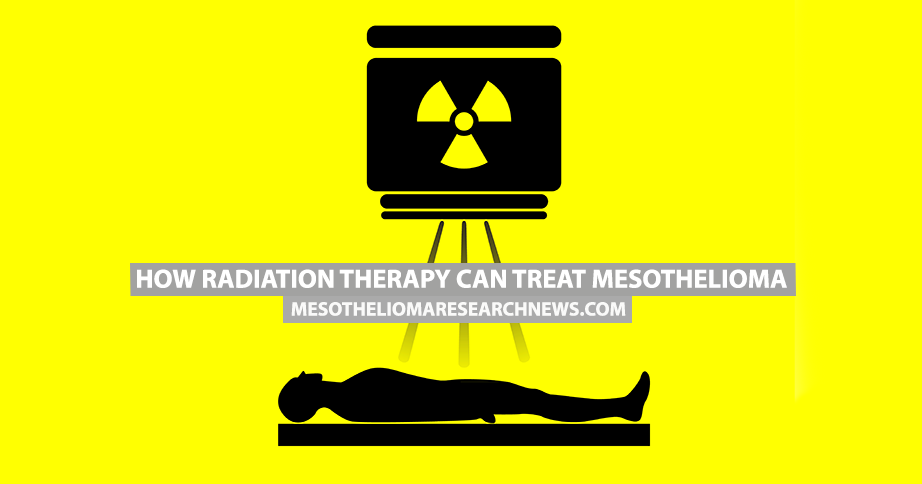Radiation therapy is just one treatment used in the fight against mesothelioma. Typically, mesothelioma is difficult to treat with radiation therapy because it doesn’t form tumors in the same way other cancers do. This makes it hard to target the cancerous cells with radiotherapy while avoiding nearby healthy tissue. However, new technology is improving radiation beams’ precision.
MORE: What you need to know following a mesothelioma diagnosis.
According to the American Cancer Society, radiation therapy can be used in two different ways for mesothelioma treatment: After surgery to help kill off any cancer cells missed during the procedure or as a palliative treatment to help relieve some of the symptoms associated with the disease like pain, difficulty swallowing, shortness of breath, and bleeding.
There are two different types of radiation therapy that can be used for mesothelioma. The most common is external beam radiation therapy (EBRT) which uses machines to direct x-ray beams into the areas of the body where the mesothelioma is, killing the cells. Newer techniques allow doctors to be more accurate at aiming the beams to the exact spot needed, making it a more efficient treatment.
In rare cases, radioactive items are placed inside the body near the site of the mesothelioma, also known as brachytherapy. The radiation from the items only travels a short distance so there is less damage to healthy tissue.
Side effects of radiation therapy include hair loss and skin burns at the site of entry and fatigue. Chest radiation therapy can lead to lung problems, including shortness of breath, while abdominal radiation therapy can lead to diarrhea, vomiting, nausea and loss of appetite. Mesothelioma patients will often undergo chemotherapy in addition to radiation therapy which can make the side effects worse.
MORE: How to manage cancer-related fatigue.
Mesothelioma Research News is strictly a news and information website about the disease. It does not provide medical advice, diagnosis or treatment. This content is not intended to be a substitute for professional medical advice, diagnosis, or treatment. Always seek the advice of your physician or another qualified health provider with any questions you may have regarding a medical condition. Never disregard professional medical advice or delay in seeking it because of something you have read on this website.



2 comments